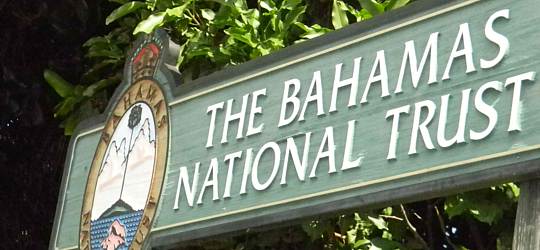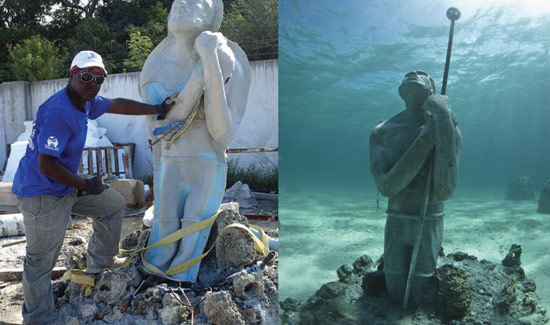
Eco-tourism promotion and new conservation legislation will empower the Bahamas National Trust with the necessary resources to sustain the country’s natural resources.
On October 6, Minister of the Environment, Earl Deveaux, tabled a proposed bill in Parliament to amend the current Bahamas National Trust Act.
“We want to create an awareness of what the Bahamas National Trust does. But also, we want to create an awareness of what these protected areas do and why they are important economically and recreationally,” said Minister Deveaux.
“National parks make a huge economic contribution to our country. Every Bahamian who enjoys crabs or conch, associates them with the bush and sea grass. This ‘protected bush’ yields an abundance of nature. Many, especially fly fishermen, commercial fishermen, and hunters, that appreciate the value of ecotourism, know that The Bahamas and the Bahamian way of life are inextricably linked to the environment.”
The new Bill will update the responsibilities of the National Trust and increase its accomplishments over the last 50 years. It will establish at least five new no-take Marine Reserves to the current network that takes up 20 percent of The Bahamas.
These new Reserves will create sustainable fishery resources and will be regulated through the Department of Marine Resources and the Bahamas National Trust.
They will be managed in six different protected area categories such as a Strict Nature Reserve for science research in Union Creek, a Wilderness Area for wilderness protection in Abaco and Andros, a National Park for ecotourism protection and recreation in the Exuma Cays, a Natural Monument for conservation of specific natural features in Acklins, a Habitat/Species Management Area for conservation through management intervention in Land Crab Park, a Protected Landscape/Seascape area for conservation and recreation, and a Managed Resource Protected Area for the sustainable use of natural ecosystems in Blue Hole Park.
“Targets of greatest importance to the national economy, including groundwater resources, beaches, mangroves, spawning aggregations of economically important fish species, and coral reefs, have the greatest threat from exploitation unless they receive legal protection,” said Dr. Deveaux.
“Fortunately, in the context of The Bahamas, the majority of these sensitive targets remain in areas that are relatively untouched by development and human impact.”
The Bahamas National Trust finalised a list of requested amendments, incorporated in the Bahamas National Trust (Amendment) Act, 2010, which was confirmed by Council Resolution on March 26, 2010.
The requested amendments include a subsection in Section 4 that strengthens BNT’s overall duties and the organisation’s responsibilities to protecting the natural resources. It will also clarify the ambiguous language to confirm BNT as a government and private advisor on development, conservation, and biodiversity issues, as well as their policies.
BNT will add a Section to the Act to allow them to clarify, diversify, and add membership categories to its current register. Another Section will allow annual subscription fees to be applied in flexible yearly payments according to the month of joining the BNT membership register.
Other areas affected by the amendments are the procedures of General Meetings and BNT Elections processes, changes to the establishment of the Council, the appointing of special advisors, the Code of Conduct for Council members, and the Execution of Contracts for Goods and Services.
BNT also wants the government to clarify the legal power to appoint the Registered Office of the BNT Council, as well as Constabulary, to give wardens and volunteers the power and protection of constables for justice administration.
They seek to apply special privileges to protect BNT lands from encroachment and squatting, loss of heritage, as well as amend tax exemptions to BNT lands.
The new Act calls for accounting procedure changes to free auditors from having to put a financial value on public lands that cannot be sold and held in perpetual trust for the Bahamian people. They will also look to attract securities investments through stock exchanges within The Bahamas and other countries worldwide.
Other sections of the 2010 Amendment provide for strengthening the enabling provision or power to make bylaws in certain instances.
By Gena Gibbs
Bahamas Information Services
BIS Photo/Gena Gibbs



